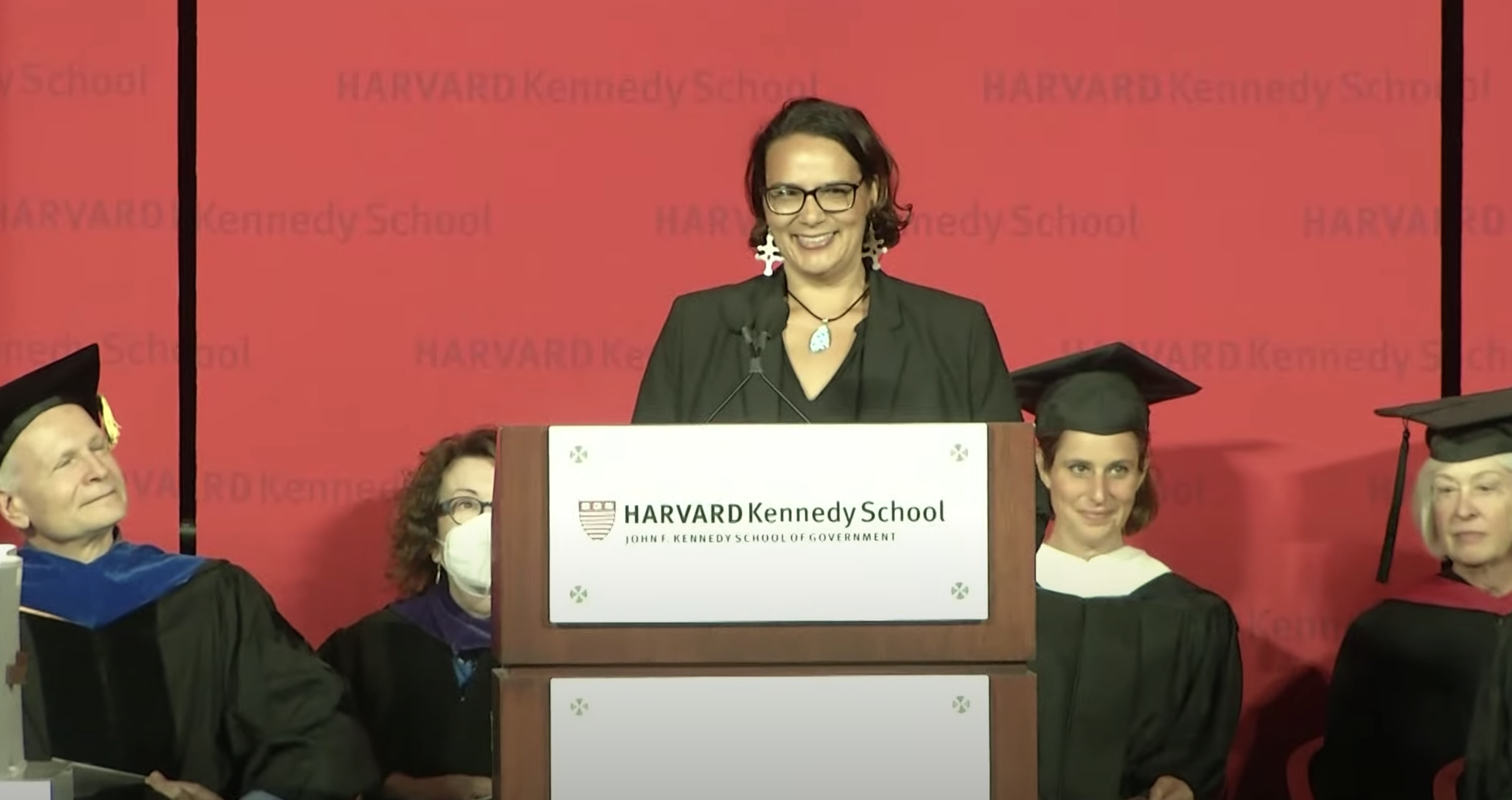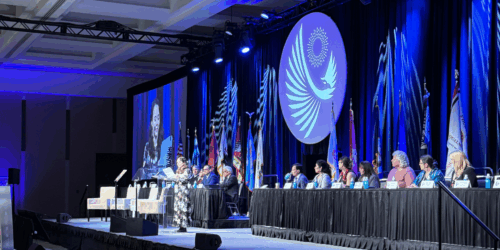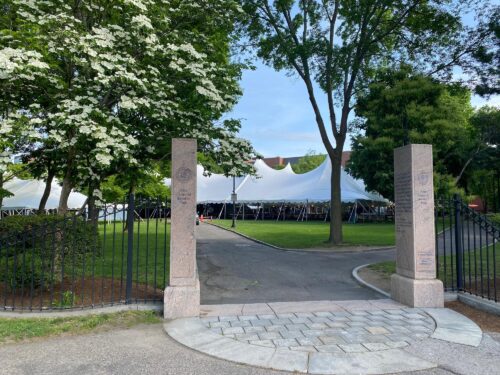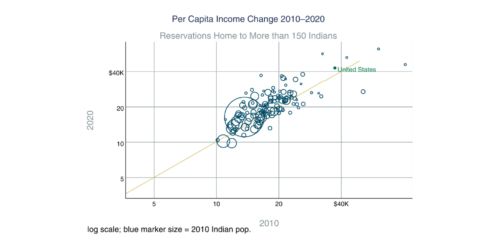Megan Minoka Hill, Program Director for the Harvard Project on American Indian Economic Development housed at the Ash Center, helped open the 2022 Harvard Kennedy School Diploma Ceremony, the marquee ceremony of commencement week, with a land acknowledgment. The acknowledgment not only honored the ancestral territory of the Massachuset peoples and neighboring Wampanoag and Nipmuc nations but called on Harvard and the Kennedy School to learn and build new and meaningful connections with Indigenous peoples and their nations.

The following is an unabridged copy of Hill’s remarks:
Good afternoon.
My name is Megan Minoka Hill. My traditional name is Manigebskwa and I am Turtle Clan from the Oneida Nation of Wisconsin. I serve as the Program Director of the Harvard Project on American Indian Economic Development here at the Harvard Kennedy School, which, for the last 35 years, has worked in partnership with tribal governments in the United States and around the world to support Indigenous self-determination and nation- building.
As we assemble on the banks of the Charles River for today’s graduation ceremony, we acknowledge that we are gathered on the ancestral territory of the Massachuset peoples, the original peoples of the land that is now known as Cambridge and Boston. We also recognize the neighboring nations within the Commonwealth, including the Wampanoag Nations to the southeast and the Nipmuc Nation to the west. Long before Harvard University or the Kennedy School existed, this region served as an important site of meeting, trade, and diplomacy among nations. The Massachuset, Wampanoag, and Nipmuc nations and their peoples are still here today, living vibrant lives and running contemporary governments. We recognize and honor their past, present, and futures as well as their abiding relationships to these precious lands.
The Charter of 1650, by which Harvard University continues to be governed, pledges the University to “the education of English and Indian youth.” It is a commitment that has largely remained hollow for the Indian youth. However, at the heart of any land acknowledgment is reckoning with past injustices with respect and responsibility. It is an opportunity for Harvard to fulfill its obligation to Indigenous peoples, to build reciprocal relationships, and create pathways. It is an opportunity for a new future, and while there is much work ahead, the Kennedy School is committed to learning and building new and meaningful connections with Indigenous peoples and their nations.
Though I am Indigenous, like most—if not all—of you, I am a visitor and guest on these lands. I invite and encourage you to educate yourselves—to learn about and be in good relationship with the first peoples and lands around you. I leave you with a few words from my grandfather, Norbert Hill, Sr., who was a leader of my nation. He often said, walk gently and act humbly.
Thank you.
Watch the 2022 Diploma Ceremony




